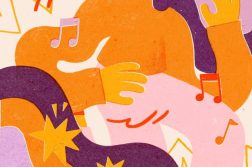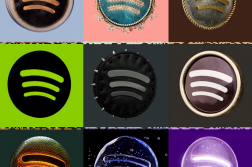On the evening of Wednesday, April 21st, I was sitting in Slug & Lettuce on Above Bar, enjoying a cocktail as I wrote my dissertation.
When I woke up on Thursday morning, I was blind.
You might think that sounds overly dramatic; no one just wakes up blind… right? But I did. Although I would later learn that my spontaneous blindness was the result of a corneal ulcer— a freak bacterial infection that took hold of my eyes and blocked out all my vision for 2 weeks— for the purposes of this piece, I’m less concerned with the condition that caused my blindness than the experiences I had as a result. Because my experience with blindness exposed me to a shameful reality: people treat you very differently when you cannot see.
But before we explore the treatment I experienced, I want to show you what blindness was like for me. The first and most alarming thing you need to know is that I noticed the pain before the blindness. The pain was so all-consuming that I only realised I couldn’t see when I tried to call my mum for help. Because of the ulcer, for me, blindness wasn’t darkness. Instead, it was a blurry white film that shrouded my eyes. Nothing could penetrate that film. It was, without question, the most terrifying experience of my life.
My mum had to call the Eye Casualty Unit at Southampton General Hospital and call a taxi for me; I couldn’t see my phone well enough to do either. She did as much as she could all the way from the US, but she couldn’t help me navigate the stairs of my apartment building or pick me up during the millions of times that I fell— because of course, the building’s only elevator chose that specific morning to give up the ghost. And when I finally stumbled out on the street to find my Uber— groping at trees and bins and any other solid landmarks to guide me— I found a new level of helplessness. How would I know if there was oncoming traffic? How would I find my Uber? How would I keep from getting in a random stranger’s car?
This was only the first of many challenges I faced once my sight was gone. And as I struggled to navigate Ubers, busy roads, and even the corridors of the hospital, I quickly learned that my fellow human beings were not only unwilling to help me, they were unwilling to see me as a person. The first time the Uber driver dropped me off at the Eye Casualty Unit, he scoffed when I failed to immediately disembark. “I can’t see,” I choked out through the pain. “I can’t see anything, can you please help me get inside?”
That was the first time someone grabbed my body— without warning, without telling me why— and more or less manhandled me in the correct direction (without even telling me once we had arrived). Those who guided me made it clear that this assistance was an inconvenience and that I wasn’t worth the extra effort to make the overall experience less frightening for me. And as I struggled the navigate the airport for my flight home to the US, I encountered new challenges.
People spoke to me loudly and slowly— as if my lack of sight equated to a lack of hearing and understanding— if they even spoke to me at all. Others seemed put off by the fact that I was able to walk and speak and treated me as though my blindness was somehow a ruse. (Never mind the fact that I was openly sobbing in the airport or that my eyes were covered by two layers of the darkest sunglasses I owned). But perhaps worse still were those who treated my blindness as a public curiosity. One older man actually pulled my AirPods out of my ears to loudly ask me, “Do you speak English? What happened to your eyes?”
That question was only the first of many unsolicited “What happened to you?”s. Without any attempt to connect with me as a person, to introduce themselves or say hello, people I didn’t know and couldn’t see demanded to know why I was blind, with the clear implication that, if I had the nerve to be disabled in public, they were entitled to an explanation.
I have never experienced such treatment before and— once my ulcer was treated and my eyesight returned— I haven’t experienced it since. But that’s exactly what I find horrific. Because my blindness was temporary, but that’s not the case for other people. And, as I reflect on my own experience, I am appalled to think that others who are permanently blind encounter that treatment on a daily basis. I’ll admit that, as a sighted person, I have rarely considered the reality of the blind experience. But, after (temporarily) losing my sight, I think my perspective— and that of many others— needs a complete overhaul.
Although we may often consider experiences that are different from our own— for example, we might be especially considerate of people with limited mobility and physical disabilities— we need to include blindness and limited vision in that consideration, especially when it comes to our treatment of those who fall in that category. Maybe that means taking a closer look at our treatment of those who are different from us. Maybe that means a greater awareness of the fact that no one is immune to disability; at any given moment, you could lose your sight, your hearing, or your mobility. How would you want others to treat you if that suddenly became your reality?
I had to answer those questions for myself when being blind became my reality. I’m sharing my experience with the hope that my story will help you explore those questions without experiencing their pain for yourself.



